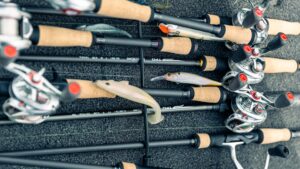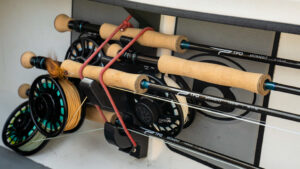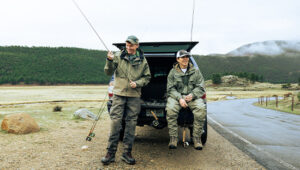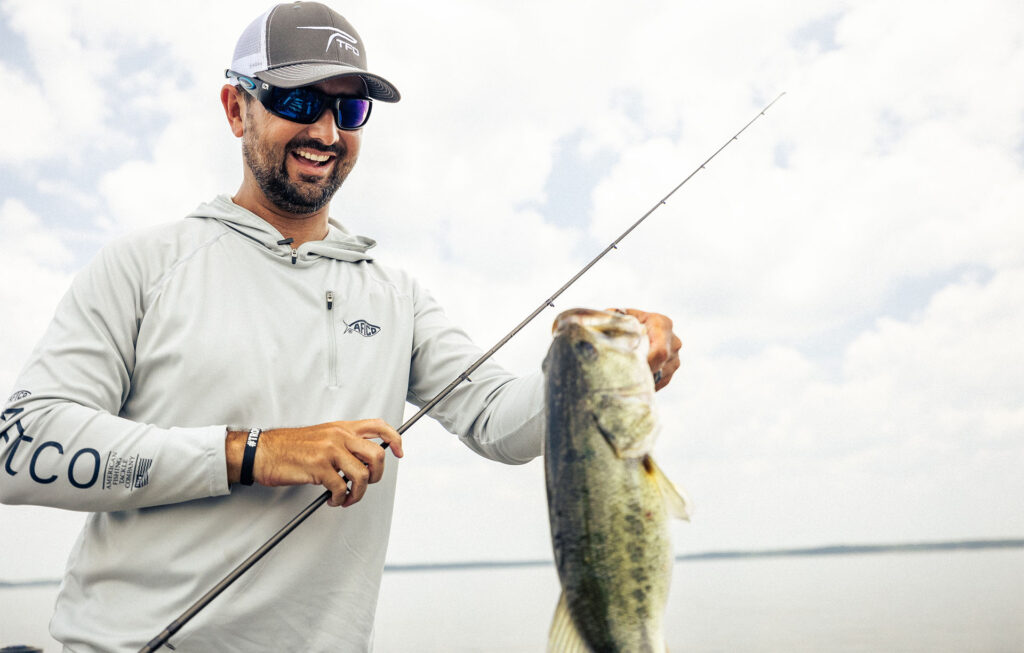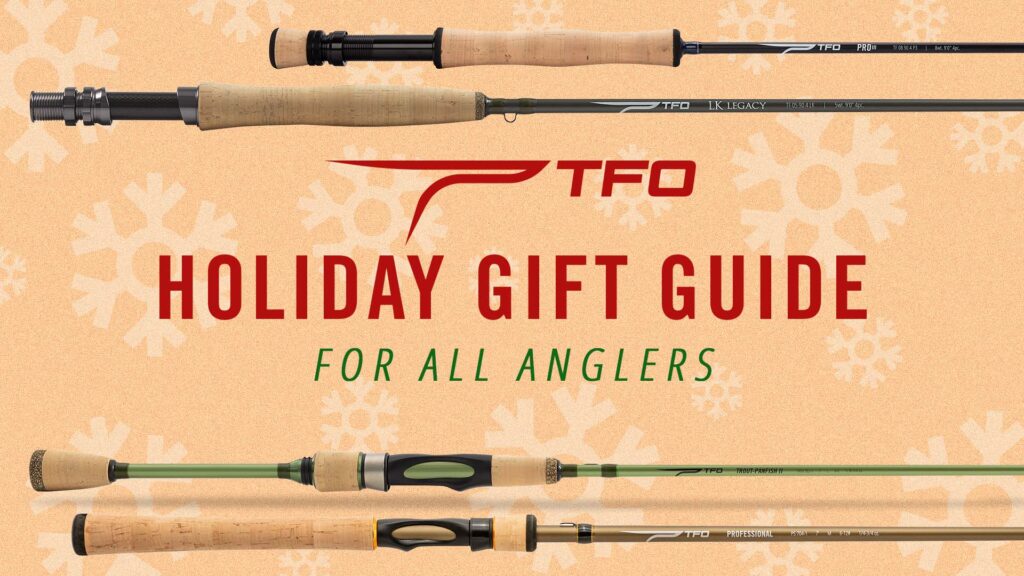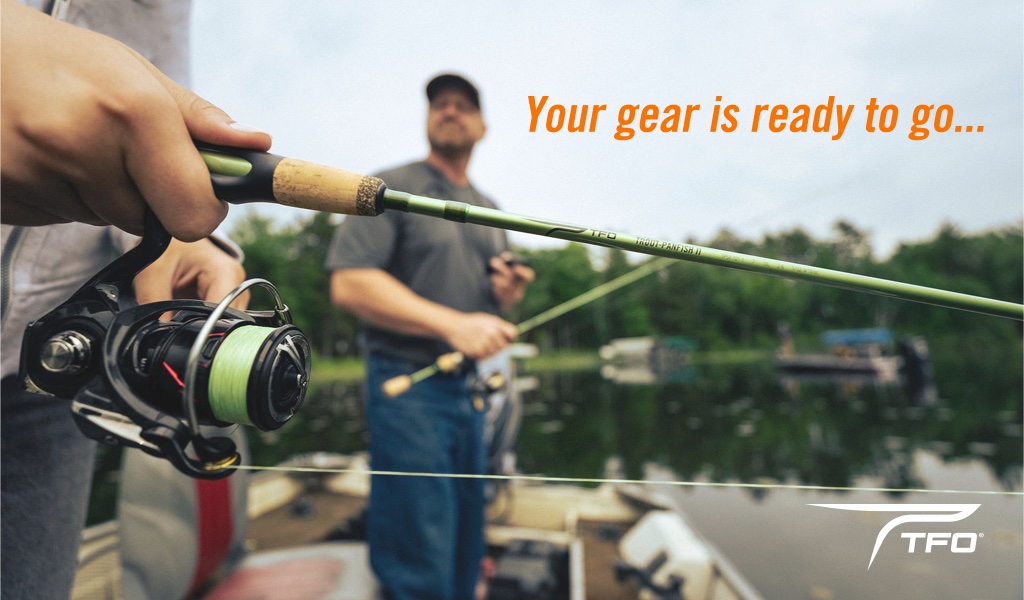“When the days get shorter, darker and colder, most anglers lament even getting out of their warm beds…if you are a swinger, the coffee is brewing and you are more than pumped to get on the road and step into a run.
Dries aren’t really coming off, the hopper-dropper crowds have all but vanished and the fair weather anglers are at home prepping for a day of running errands and ambling around Home Depot killing time.
There is something about swinging flies.
Long rods, a pocket full of flies and sink tips.
Deep glassy runs, foggy eyes and cold toes.
It’s an exercise in patience and consistency, (and some kind of dark attitude to deal with long hours of sparse hook-ups).
Strip, strip, strip, cast. Take a step. Put your hand in the fleece liner.

Photo: Lance Nelson
Maybe you’ll push that steelhead back far enough back into the pool, piss it off enough to attack your offering.
Maybe you’ll cover enough water and hit that big trout laying low, get a hit on the dangle.
The hours and days drag on. You over think the purples, blues and blacks of your fly. Maybe you switch out tips. The desire to move spots looms heavy.
Those with a weaker constitution may say, “F**K it,” and go out hide out in a nearby dive bar or nap in the truck.
Others considering tossing their two-handed rod onto the bank and getting out the spoon rod.
More time to stand and think, the motions become repetitive, you start playing with different anchor points.
You start to drift off….
and then…thump…thump..”
Nick Conklin – Temple Fork Outfitters Fly Fishing Product Category Manager

Photo: Lance Nelson
If you’re reading this, and are interested in learning more about two-handed fly fishing, you’re in luck. Below is a basic breakdown of swing seasons, as well as rod/reel recommendations. Be on the lookout for more blogs and posts on swing season, but this should help you get started if you’re new to this type of fishing, and curious about what rod or reel to get.
LATE SUMMER/FALL STEELHEAD
When swinging flies later in the summer, before the rains come and the days become cold and short, a lighter shorter rod can be a lot of fun.
The 12-foot, 6-weight LK Legacy two-handed rod is the perfect set-up – whether you’re fishing scandi floating lines and more classic patterns, or throwing small to medium intruders and weighted flies. This rod will also handle multi-density tips, from T-8 to T-11. The faster, stiffer rod allows for smooth line pick-up and repositioning.
Rod: 6120-4 LK
Reel: BVK SD 3.5
Line: Scandi 400-440, Skagit 425-475.

The LK Legacy TH Photo: Oliver Sutro

BVK-SD reels paired with the LK Legacy TH – Photo: Nick Conklin
WINTER STEELHEAD
When picking a good winter setup I think it’s important to find a rod that will fit the size and type of water you are fishing. Swinging a deep slow run from the shore, or from a boat? On a wide, sweeping river? Or fishing a tight quarters coastal river? For winter fish you’ll typically be fishing medium-to-large size intruders and sink tips up to 15-feet long.
When fishing these heavier and thick diameter skagit heads and tips, most casters will find a more deeper loading rod beneficial and easier to handle during long days. Two rod lengths I always carry are a shorter, 11 to 11’6” rod and something longer and heavier, ideally a 12 or 13’6” 8-weight.
The Axiom II Switch is a great option not just for small to medium water, but also for those who want to “switch,” techniques and have the ability to go from heads and swinging flies to an indicator or chuck- and-duck system.
The 13-foot, Pro II TH model is great for skagit heads and tips, and due to is medium-fast action it smoothly loads and unloads

Axiom ll Switch – Photo: Lance Nelson

The Pro ll TH – Photo: Lance Nelson

The Power Reel – Photo: Lance Nelson
Small to medium waters, coastal fishing:
Rod: 08 11 0 4 Axiom II Switch
Reel: BVK SD III
Line: 525 Skagit head, 10-feet of T-11 sink tip.
Medium to large water:
Rod: 078 13 0 4 Pro II TH
Reel: Power III
Line: 550 multi-density Skagit head, 10-feet of T-11 sink tip.

Photo: Oliver Sutro
TROUT SPEY
When it’s time to put away the dry fly rods and the big foamy terrestrials have all but been gnawed off the hook trout anglers should be eagerly looking for a longer lighter rods to swing for trout.
Having a long and light two-hander can be a lot of fun, and teach an angler a lot about seasonal holding patterns on their local trout water.
I typically like to have two, (or one rod with two line set-ups) when attacking the “trout spey,” or “micro spey,” approach. One rod will be for swinging soft hackles and little nymphs in skinny water. The second rig will be for streamers and heavier flies. On this 3/4-weight set-up, I’ll also swing a double woolly bugger set-up to give the appearance of baitfish “chasing,” each other.

Photo: Lance Nelson
Soft hackles and light flies:
Rod: 023 11 0 4 Pro II TH, (2/3-weight, 11-foot Pro II TH)
Reel: NXT BLK III
Line: 210-240 grain scandi head. 5 to 8-feet intermediate tip, or long tapered leader.
Small to medium streamers and multi-woolly bugger rigs
Rod: 034 11 0 4 Pro II TH, (3/4-weight, 11-foot, Pro II TH)
Reel: NXT BLK III
Line: 270-grain, skagit head, (13 to 15 feet long). Short sink-tip, (T-8) or a polyleader, from five to 10-feet long.
![]()
